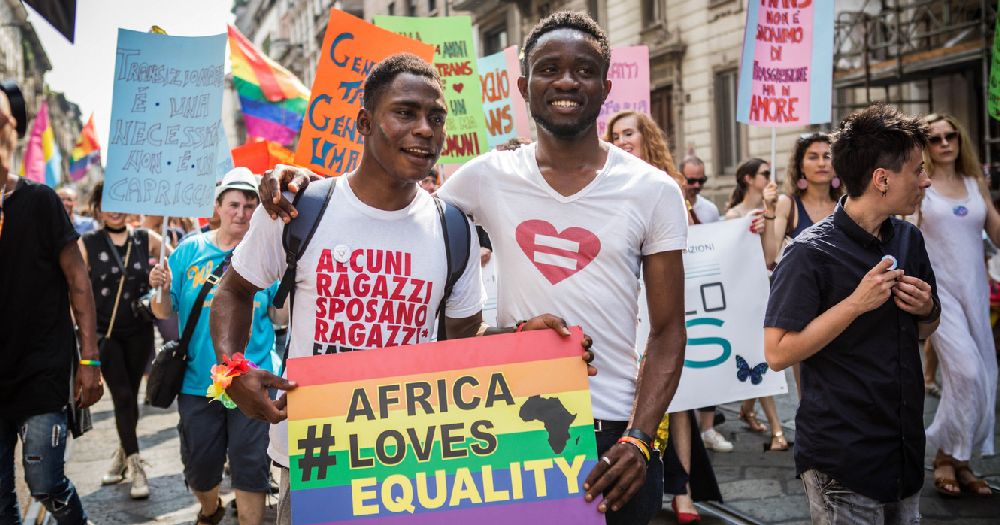The lower house of parliament in Gabon have voted to decriminalise same-sex relations less than a year after making it a crime.
In July 2019, the African nation of Gabon passed a law banning same-sex relations, with those convicted facing up to six months in jail and a fine of five million francs. On Tuesday, June 23 2020, 48 parliament members voted to revise this bill, while 24 voted against and 25 abstained.
First Lady of Gabon, Sylvia Bongo Ondimba, celebrated the outcome by writing on Twitter, “Parliament is restoring a fundamental human right for its citizens: that of loving, freely, without being condemned. The republic defends respect for everyone’s privacy and remains one and indivisible beyond feelings. Yes to dignity, no to hate.”
Le Parlement rétablit un Droit humain fondamental pour ses citoyens: celui d’aimer, librement, sans en être condamné. La République défend le respect de la vie privée de chacun et reste Une et Indivisible au-delà des sentiments. Oui à la dignité, non à la haine. #Gabon
— Sylvia Bongo Ondimba (@Sylviabongo) June 24, 2020
While action has been taken towards revising this legislation, Gabon’s LGBT+ community are fearful that a surge in homophobic attitudes might impact the senate’s decision to approve the proposed bill. One gay man told Reuters, “It is a good thing that this has happened and I am happy. But I will not be surprised if there’s a riot in the near future and that forces the government to put the law back in place.”
One member of Parliament who voted against revising the bill stated, “48 lawmakers have shaken an entire nation and its customs and traditions.”
A gay lawyer in the capital, Libreville, expressed, “Just them starting this has stirred up homophobia and when or if it is passed, I expect that the law will be met with resistance from the general population. Riots and violence against the community will probably peak and eventually the government might do another U-turn.”
Speaking about how the criminalisation of same-sex relations has impacted LGBT+ people in Gabon, an activist who works with the Interfaith Diversity Network of West Africa, Davis Mac-Iyalla, said, “It has further sent the LGBT community underground and has created harassment. The corrupt police now use that, arrest people and then people have to bribe their way out.”
According to the United Nations, there are 76 countries that criminalise same-sex relations, enforced by arrest, imprisonment, persecution, and, in nine places, the death penalty. However, countries are becoming more active towards removing these harmful laws as shown in 2019 when Botswanna and Angola voted in favor of decriminalisation following landmark rulings.
© 2020 GCN (Gay Community News). All rights reserved.
Support GCN
GCN is a free, vital resource for Ireland’s LGBTQ+ community since 1988.
GCN is a trading name of National LGBT Federation CLG, a registered charity - Charity Number: 20034580.
GCN relies on the generous support of the community and allies to sustain the crucial work that we do. Producing GCN is costly, and, in an industry which has been hugely impacted by rising costs, we need your support to help sustain and grow this vital resource.
Supporting GCN for as little as €1.99 per month will help us continue our work as Ireland’s free, independent LGBTQ+ media.

comments. Please sign in to comment.